Bankim Nagar, Siliguri, West Bengal
- GST NO. : 19BHDPS7640K1ZR
Unlocking Heart Health: How Machine ECG Technology is Revolutionizing Cardiovascular Monitoring
The integration of Machine ECG technology into cardiovascular monitoring is heralding a new era in heart health management. According to a report by Grand View Research, the global ECG monitoring market is projected to reach USD 4.77 billion by 2026, demonstrating a compound annual growth rate (CAGR) of 5.8% from 2019. This surge is largely fueled by the increasing prevalence of cardiovascular diseases, which, as noted by the World Health Organization, are responsible for approximately 32% of all global deaths.
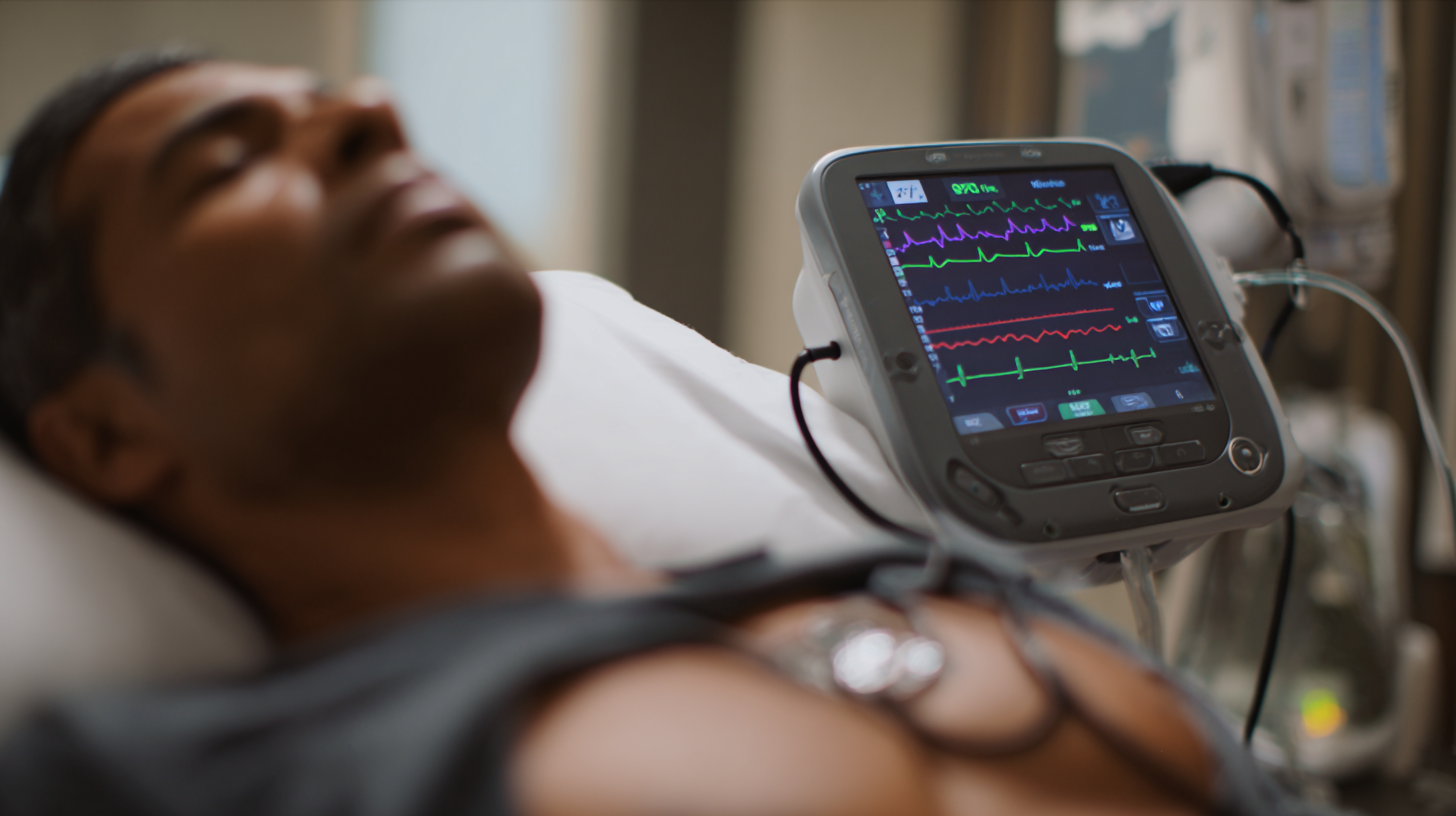 Machine ECGs are not just enhancing the accuracy of heart disease diagnoses; they are also making continuous monitoring more accessible, enabling timely interventions that can save lives. As healthcare technology evolves, the role of innovative Machine ECG systems is transforming patient care, potentially reducing the burden on healthcare systems worldwide while improving outcomes through proactive heart health management.
Machine ECGs are not just enhancing the accuracy of heart disease diagnoses; they are also making continuous monitoring more accessible, enabling timely interventions that can save lives. As healthcare technology evolves, the role of innovative Machine ECG systems is transforming patient care, potentially reducing the burden on healthcare systems worldwide while improving outcomes through proactive heart health management.
The Emergence of Machine ECG Technology in Heart Health Monitoring
The emergence of machine ECG technology is transforming the landscape of heart health monitoring. Traditionally, electrocardiograms (ECGs) were conducted in clinical settings by trained professionals, posing accessibility challenges for many patients. However, advancements in machine learning and artificial intelligence are enabling the development of portable, cost-effective ECG devices that can deliver real-time monitoring right from the comfort of home. According to a report by the American Heart Association, up to 30% of individuals with cardiovascular diseases go undiagnosed, emphasizing the urgent need for widespread and accessible heart health monitoring solutions.
Recent studies indicate that machine ECG technology can improve diagnostic accuracy significantly. For instance, a study published in the Journal of the American College of Cardiology found that AI algorithms could accurately identify arrhythmias with over 97% sensitivity and 85% specificity. This capability not only streamlines the detection process but also empowers patients by providing them with personalized health insights. Moreover, the global ECG monitoring market is projected to grow from $2.2 billion in 2021 to over $4 billion by 2028, reflecting the increasing demand and confidence in these advanced technologies as vital tools in managing cardiovascular health.
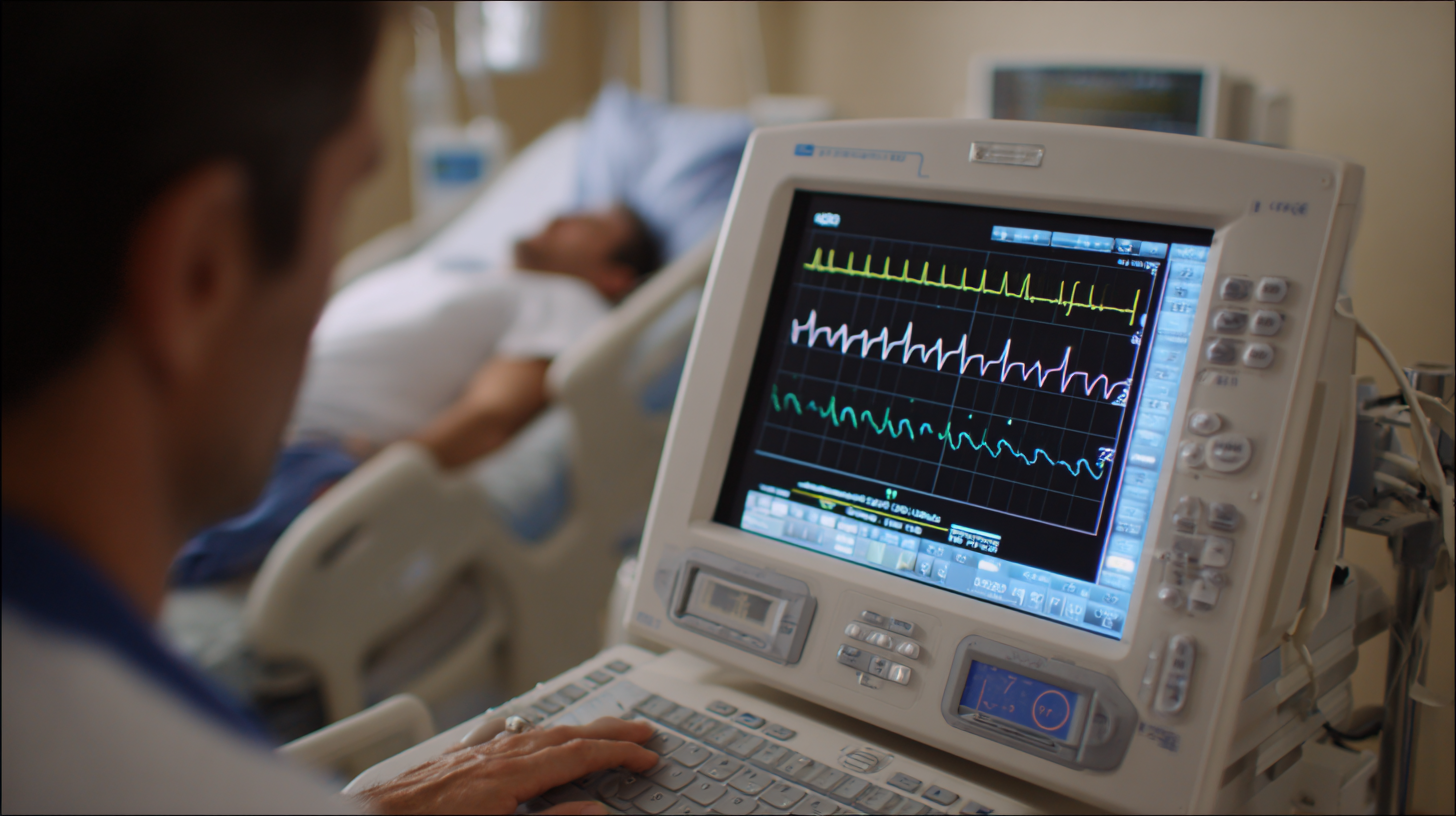
Understanding the Advancements in Digital Electrocardiography
The advancements in digital electrocardiography have ushered in a new era of cardiovascular monitoring, significantly enhancing patient care and outcomes. Machine ECG technology is now capable of delivering real-time data analysis, which allows for quicker diagnosis and treatment of heart conditions. According to a report by Markets and Markets, the global ECG monitoring market is expected to reach $10.4 billion by 2025, growing at a compound annual growth rate (CAGR) of 6.3%. This surge is attributed to the rising prevalence of cardiovascular diseases and the increasing adoption of remote patient monitoring solutions.
One of the most notable innovations is the integration of artificial intelligence (AI) in ECG interpretation, which has demonstrated improved accuracy in identifying arrhythmias and other cardiac anomalies. A study published in the Journal of the American College of Cardiology revealed that AI algorithms outperformed traditional methods in ECG analysis, achieving 99% sensitivity in detecting atrial fibrillation. This move towards digitalization not only enhances diagnostic efficiency but also empowers clinicians to manage heart health proactively, leading to better patient outcomes and reduced healthcare costs. With digital electrocardiography, we are witnessing a transformation in how cardiovascular health is monitored, laying the groundwork for a healthier future.
Comparative Analysis: Traditional ECG vs. Machine ECG Solutions
The landscape of cardiovascular monitoring is undergoing a significant shift with the emergence of machine ECG technology. Traditional ECGs, while effective, often require a controlled environment and trained personnel for effective monitoring and interpretation. These devices typically involve multiple leads and complex setups, making them less accessible for continuous use in everyday scenarios. In contrast, machine ECG solutions utilize advanced algorithms and artificial intelligence to analyze heart rhythms in real-time, providing immediate feedback and fostering proactive health management.
Tips for choosing the right ECG solution include considering the ease of use and accessibility of readings. Look for devices that offer user-friendly interfaces and mobile applications to enhance your monitoring experience. Additionally, check whether the machine ECG technology conforms to the necessary regulatory standards to ensure the validity and safety of the data collected.
Moreover, the non-invasive nature and portability of machine ECGs make them suitable for continuous monitoring, giving healthcare providers actionable insights that can lead to timely interventions. This adaptability allows individuals to monitor their heart health more effectively, integrating seamlessly into their daily lives. Machine ECG solutions are transforming how we approach cardiovascular health, promoting a proactive rather than reactive strategy in heart care.
Unlocking Heart Health: How Machine ECG Technology is Revolutionizing Cardiovascular Monitoring
| Feature | Traditional ECG | Machine ECG |
|---|---|---|
| Accuracy | Moderate | High |
| Real-time Monitoring | Limited | Continuous |
| Data Interpretation | Manual Analysis Required | Automated Analysis |
| Accessibility | Limited to Clinical Settings | Portable and Home Use |
| Cost | High | Affordable Options Available |
Real-time Data Processing and its Impact on Cardiovascular Care
The advancement of machine ECG technology is transforming cardiovascular monitoring by enabling real-time data processing, which plays a crucial role in patient care. Traditionally, ECG readings were recorded and analyzed post-facto, often resulting in delays in diagnosis and treatment. With real-time capabilities, healthcare providers can now instantly interpret data, allowing for timely interventions that can be lifesaving. This immediate access to vital heart metrics empowers doctors to make informed decisions, enhancing overall patient outcomes.
Tip: For individuals with heart conditions, consider wearing a portable ECG device. These devices often connect to mobile applications, providing continual heart monitoring that can alert you and your healthcare provider to any irregularities promptly.
Moreover, the data generated in real-time can be shared seamlessly across medical systems. This interconnectedness not only enhances the accuracy of diagnoses but also facilitates collaborative care models, where specialists can review data concurrently. The shift towards a more integrated approach ensures that patients receive comprehensive care tailored to their unique cardiac health needs.
Tip: Regularly check your health records and discuss your ECG readings with your healthcare provider to better understand your heart health and any necessary lifestyle adjustments.
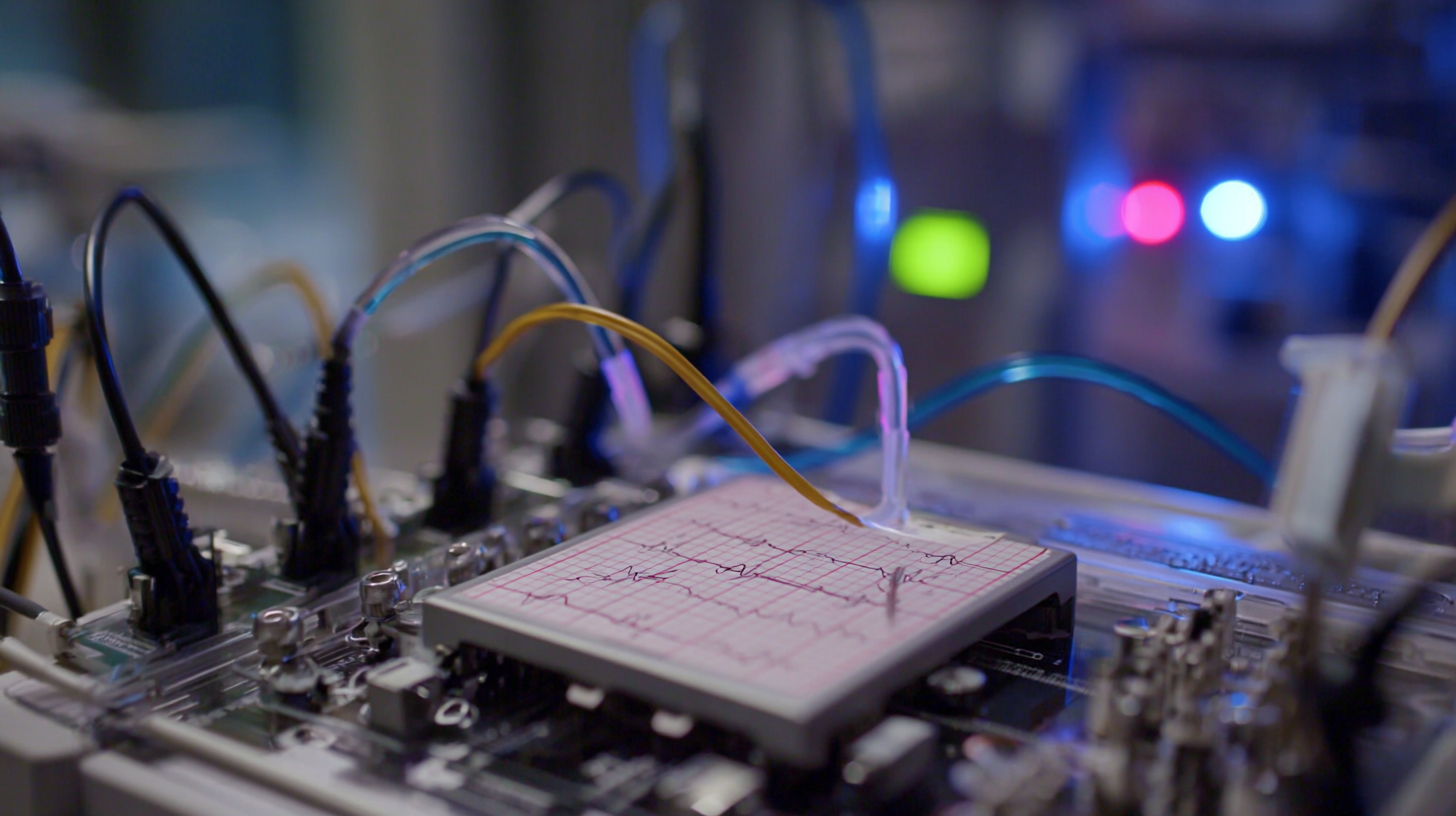
Future Trends: Integrating AI and Machine Learning in ECG Technology
The integration of artificial intelligence (AI) and machine learning (ML) in electrocardiogram (ECG) technology is poised to transform cardiovascular monitoring in unprecedented ways. According to a recent report by MarketsandMarkets, the global ECG market is projected to reach $18.7 billion by 2026, driven largely by technological advancements. AI algorithms can analyze ECG data more efficiently, identifying patterns and anomalies that traditional methods may overlook. This capability could significantly reduce the time taken for diagnoses and improve patient outcomes.
Moreover, a study published in the Journal of the American College of Cardiology highlights that machine learning models can predict cardiovascular events with up to 95% accuracy based on ECG readings alone. By continuously learning from vast datasets, these AI systems can refine their analysis, making them increasingly valuable in both clinical and remote monitoring settings. As healthcare providers adopt these innovations, the focus will shift towards real-time analytics, enabling proactive management of heart health and leading to a new era of personalized medicine. The synergy of AI and ECG technology not only enhances diagnostic capabilities but also empowers patients with vital insights into their cardiovascular health.
Related Posts
-
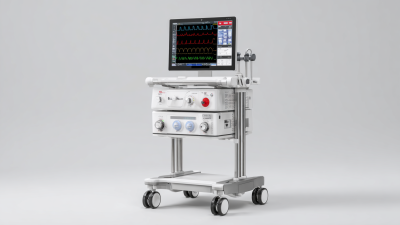
Top 7 Best Mobile Ecg Machines Transforming Healthcare Globally
-
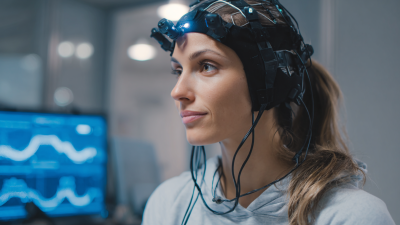
5 Essential Tips for Choosing the Right EEG Equipment Based on Industry Insights
-

7 Smart Approaches to Maximize the Benefits of Portable Eeg
-
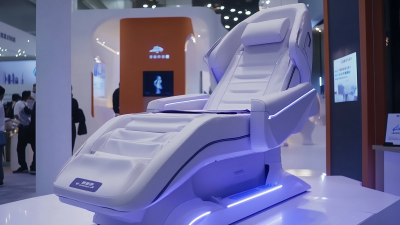
Top 10 Electric Therapy Machine Manufacturers from China Featured at the 137th Canton Fair
-

Addressing Common Issues with Pulmonary Function Machines: Industry Insights and Solutions
-

Ultimate Checklist for Selecting the Right Pulmonary Function Machine

